Related Research Articles

The Donegal fiddle tradition is one of the distinct fiddle traditions within Irish traditional music. The distinctness of the Donegal tradition developed due to the close relations between County Donegal and Scotland, and the Donegal repertoire and style has influences from Scottish fiddle music. For example, in addition to the ”universally known” standard Irish dance tunes, there is an added volume of Scottish and Nova Scotia tunes played, with even some tunes from Shetland and Orkney. This includes standard tune types such as double jigs, slip jigs, reels, and hornpipes. It has been claimed that Donegal musicians play more slip jigs than any other region of Ireland. This is potentially due to the geographical borders/mountains keeping Donegal's repertoire more locally-known for decades. There is also a prevalence of mazurka playing. Mazurkas are historically mainland-European tunes very similar to a waltz, in its 3
4 meter, though generally livelier and with more emphasis being placed on the second beat of each measure. Another uniquely Donegal tune is called the barndance, stemming from the Germanic schottische, also similar to the Norwegian reinlander. The barndance is very similar to a hornpipe, but slower than a reel; typically they are played with less of a hornpipe's “swing” and more of the “drive” of a reel.
In the music of Ireland, Irish rebel songs are folk songs which are primarily about the various rebellions against British Crown rule. Songs about prior rebellions are a popular topic of choice among musicians which supported Irish nationalism and republicanism.
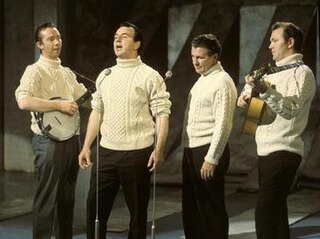
The Clancy Brothers were an influential Irish folk music group that developed initially as a part of the American folk music revival. Most popular during the 1960s, they were famed for their Aran jumpers and are widely credited with popularising Irish traditional music in the United States and revitalising it in Ireland, contributing to an Irish folk boom with groups like the Dubliners and the Wolfe Tones.
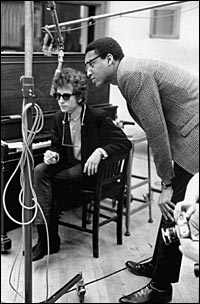
Thomas Blanchard Wilson Jr. was an American record producer. He is best known for his work in the 1960s with acclaimed artists such as Bob Dylan, Frank Zappa and the Mothers of Invention, Simon & Garfunkel, the Velvet Underground, Cecil Taylor, Sun Ra, Eddie Harris, Nico, Eric Burdon and the Animals, the Blues Project, the Clancy Brothers and Tommy Makem, and others.

The Irish Rovers is a group of Irish musicians that formed in Toronto, Canada in 1963 and named after the traditional song "The Irish Rover". They are best known for their international television series, contributing to the popularization of Irish Music in North America, and for the songs "The Unicorn", "Drunken Sailor", "Wasn't That a Party", "The Orange and the Green", "Whiskey on a Sunday", "Lily the Pink", "Finnegan's Wake" and "The Black Velvet Band".

Patrick Michael Clancy, usually called Paddy Clancy or Pat Clancy, was an Irish folk singer best known as a member of the Clancy Brothers and Tommy Makem. In addition to singing and storytelling, Clancy played the harmonica with the group, which is widely credited with popularizing Irish traditional music in the United States and revitalizing it in Ireland. He also started and ran the folk music label Tradition Records, which recorded many of the key figures of the American folk music revival.

Liam Clancy was an Irish folk singer from Carrick-on-Suir, County Tipperary. He was the youngest member of the influential folk group the Clancy Brothers, regarded as Ireland's first pop stars. They achieved global sales of millions and appeared in sold-out concerts at such prominent venues as Carnegie Hall and the Royal Albert Hall.
Sweeney's Men was an Irish traditional band. They emerged from the mid-1960s Irish roots revival, along with groups such as The Dubliners and the Clancy Brothers. The founding line-up in May 1966 was Johnny Moynihan, Andy Irvine and "Galway Joe" Dolan.
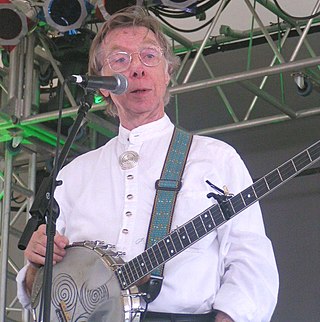
Thomas Makem was an Irish folk musician, artist, poet and storyteller. He was best known as a member of the Clancy Brothers and Tommy Makem. He played the long-necked 5-string banjo, tin whistle, low whistle, guitar, bodhrán and bagpipes, and sang in a distinctive baritone. He was sometimes known as "The Bard of Armagh" and "The Godfather of Irish Music".
"Johnny I Hardly Knew Ye", also known as "Johnny We Hardly Knew Ye" or "Johnny I Hardly Knew Ya", is a popular traditional song, sung to the same tune as "When Johnny Comes Marching Home".
Makem and Clancy was an Irish folk duo popular in the 1970s and 1980s. The group consisted of Tommy Makem and Liam Clancy, who had originally achieved fame as a part of the trailblazing folk group The Clancy Brothers and Tommy Makem in the 1960s. Makem and Clancy sang a combination of traditional Irish music, folks songs from a variety of countries, and newly written pieces, including compositions that Tommy Makem himself wrote. One reporter described their music as "more polished and varied than that used by the Clancy Brothers."
Makem and Spain was an Irish-American folk music band. The band was founded as "The Makem Brothers" in February 1989 by Rory, Shane, and Conor Makem, the three sons of "The Godfather of Irish Music" Tommy Makem, and grandsons of Irish source singer Sarah Makem.
Sarah Makem a native of Keady, County Armagh, Northern Ireland, was a traditional Irish singer. She was the wife of fiddler Peter Makem, mother of musicians Tommy Makem and Jack Makem, and grandmother of musicians Tom Sweeney, Jimmy Sweeney, Shane Makem, Conor Makem and Rory Makem. Sarah Makem and her cousin, Annie Jane Kelly, were members of the Singing Greenes of Keady.
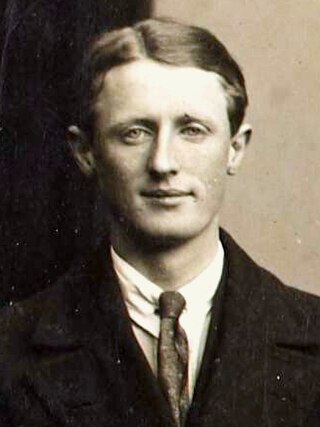
Joseph Aloysius Sweeney was an Irish politician and military commander. He fought in the Easter Rising in the GPO and was a member of the IRA during the war of independence. He later became Chief of Staff of the Irish Army.
Tradition Records was an American record label from 1955 to 1966 that specialized in folk music. The label was founded and financed by Guggenheim heiress Diane Hamilton in 1956. Its president and director was Patrick "Paddy" Clancy, who was soon to join his brothers Liam and Tom Clancy and Tommy Makem, as part of the new Irish folk group, The Clancy Brothers and Tommy Makem. Liam Clancy designed the company's maple leaf logo. Columbia University Professor of Folklore Kenneth Goldstein was also involved in the early creation of the company, which operated out of Greenwich Village, New York, United States.
The Home Place is a play written by Brian Friel that first premiered at the Gate Theatre, Dublin on 1 February 2005. After a sold-out season at the Gate, it transferred to the Comedy Theatre, in London's West End, on 25 May 2005, where it won the 2005 Evening Standard Award for Best Play, and made its American premiere at the Guthrie Theater in September 2007.
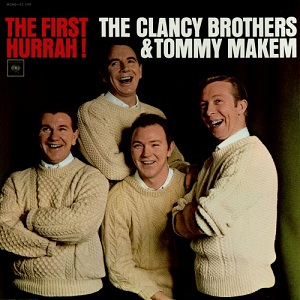
The First Hurrah! is a collection of traditional Irish folk songs performed by The Clancy Brothers and Tommy Makem. It was their fifth album for Columbia Records and was released in 1964. The album's title is likely a play on Edwin O'Connor's 1956 novel The Last Hurrah. The original LP featured liner notes by critic Robert Sherman. The album appeared on the Billboard charts and its single, "The Leaving of Liverpool," on the Irish Top 10 charts.

In Person at Carnegie Hall was the seminal Irish folk group The Clancy Brothers and Tommy Makem's most successful album. It was recorded in Carnegie Hall on 17 March 1963 at their annual St. Patrick's Day concert. In the documentary, The Story of the Clancy Brothers and Tommy Makem, Paddy Clancy said that this was the best album the group recorded. The album spent months on the American Top LPs chart and broke the top fifty albums in December 1963, an unprecedented occurrence for an Irish folk music recording at that time. It has never been out of print since its initial release.
References
- ↑ "Talented Sweeneys". Sweeney Clan.
- ↑ Tommy Makem, Barley Bree. "I'll Tell Me Ma". Youtube. Archived from the original on 21 December 2021. Retrieved 23 November 2015.
- ↑ "Barley Bree". The Balladeers. Retrieved 23 November 2015.
- ↑ Barley Bree. "Ireland My Home". Youtube. Archived from the original on 21 December 2021. Retrieved 23 November 2015.
- ↑ Barley Bree. "The Star of the County Down". Youtube. Archived from the original on 21 December 2021.
- ↑ "Barley Bree". discogs.com. Discogs. Retrieved 22 March 2022.
- ↑ "Various – Milwaukee Irish Fest Silver". discogs.com. Discogs. Retrieved 22 March 2022.
- ↑ "Tommy Makem: Discography". clancybrothersandtommymakem.com. The Clancy Brothers & Tommy Makem. Retrieved 22 March 2022.
- ↑ "Who We Are". evansanddoherty.com. Evans & Doherty. Retrieved 22 March 2022.
- ↑ "Evans & Doherty with Jimmy Sweeny – Sailing Ships And Sailing Men". discogs.com. Discogs. Retrieved 22 March 2022.
- ↑ "Jimmy Sweeney & Kevin Roach, Jan 2018". oldtriangle.com. The Old Triangle Irish Alehouse. Retrieved 22 March 2022.
- ↑ "Jimmy Sweeny – Come Listen Awhile". discogs.com. Discogs. Retrieved 22 March 2022.
- ↑ "Patrick Vincent O'Donnell Obituary". legacy.com. Legacy, The Journal Inquirer. Retrieved 22 March 2022.
- ↑ Sweeney, Tom. "Anthem for the Children". Youtube. Archived from the original on 21 December 2021. Retrieved 23 November 2015.